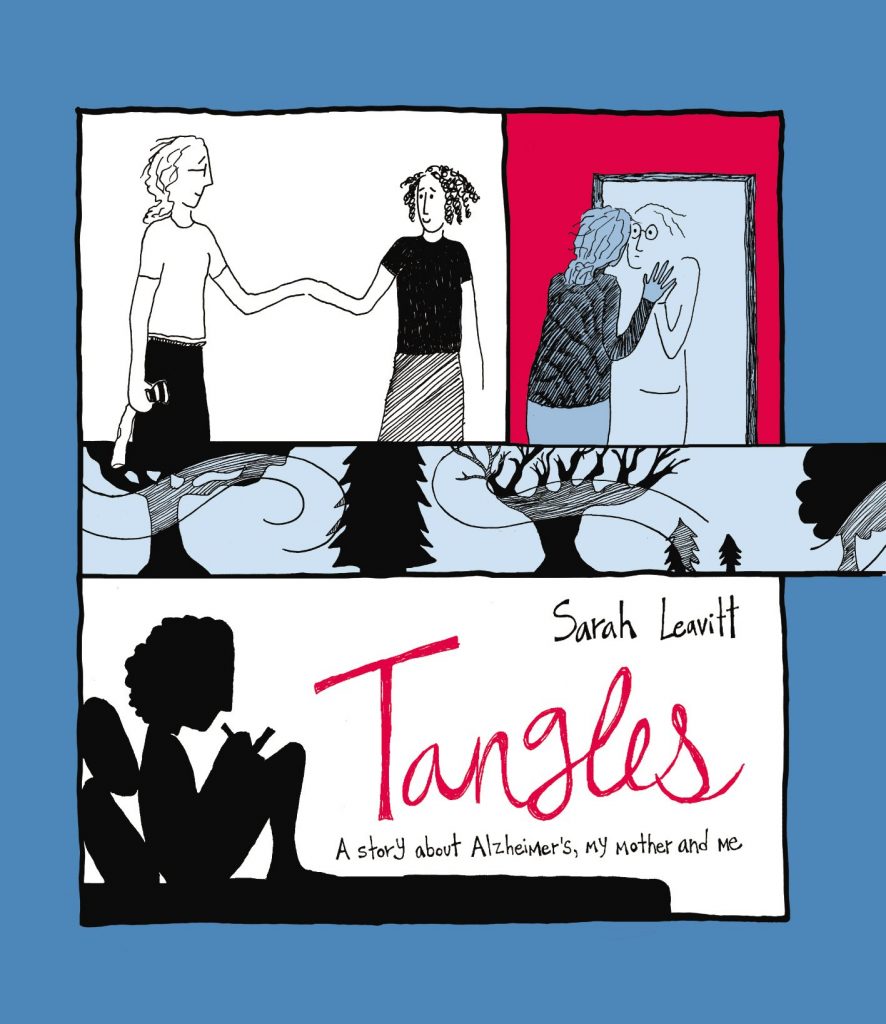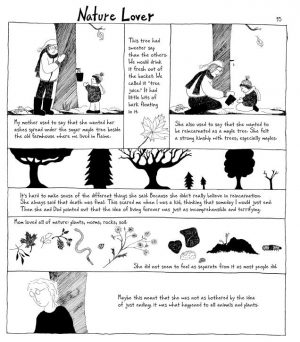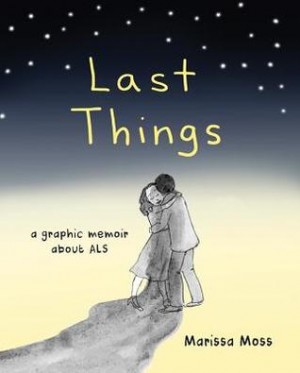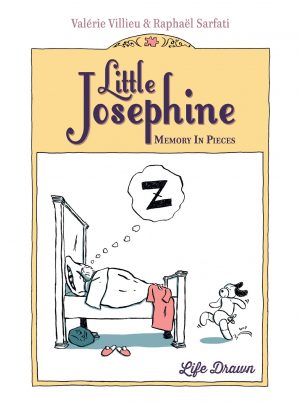Review by Frank Plowright
When anyone is diagnosed with Alzheimer’s Disease it’s sad, but it happened to Sarah Leavitt’s mother at the tragically early age of 52. Leavitt lived on the other side of Canada at the time, so was only able to visit a few times a year, making sketches and notes as documentation to aid her own poor memory in the future, and these eventually coalesced into Tangles.
It’s a loving memoir of her mother’s life and influence, encompassing a broad look at other family members. As such it could be seen as detailing any normal family, and so perhaps not of any great interest, but that discounts Leavitt’s ability to envelop readers in her recollections and give them a resonance. That realisation occurs early when she considers her very different aunts and their relationship with her mother. They were all relatively young when their own mother died, yet theirs was always a harmonious relationship, which Leavitt contrasts with her own combative teenage years in the company of her sister Hannah. Midge is the focus, though, shown as a loving and strongly principled woman, and her family struggle to understand what might be wrong with her when her behaviour starts changing.
Leavitt draws everything very simply, almost child-like in one sense, but with obvious compositional skills when it comes to detail and poses. She also packs the pages for a dense reading experience, the small illustrations coupled with captions rather than dialogue balloons, and there’s an intensity as she notes how her mother’s condition affects the entire family. Leavitt obviously conveys the effect on herself well, but also has an understanding of how others are affected and how they learn to cope. She shows Midge’s sad decline, the facilities and help on offer along with understandable frustrations about limitations, and the few comforts available.
Importantly Leavitt also chronicles the good times, and in places she’s very funny, perhaps surprisingly so given the overall circumstances, but that’s necessary and it ensures a readability. That Leavitt doesn’t cast herself as an angel throughout convinces as to an honesty shining all the way through what’s a heartfelt and moving memoir enabling any reader to understand the terrible situation.





